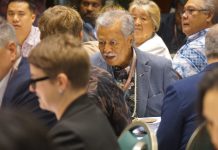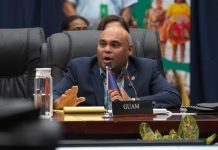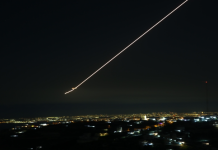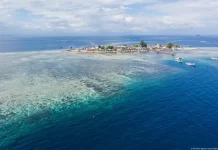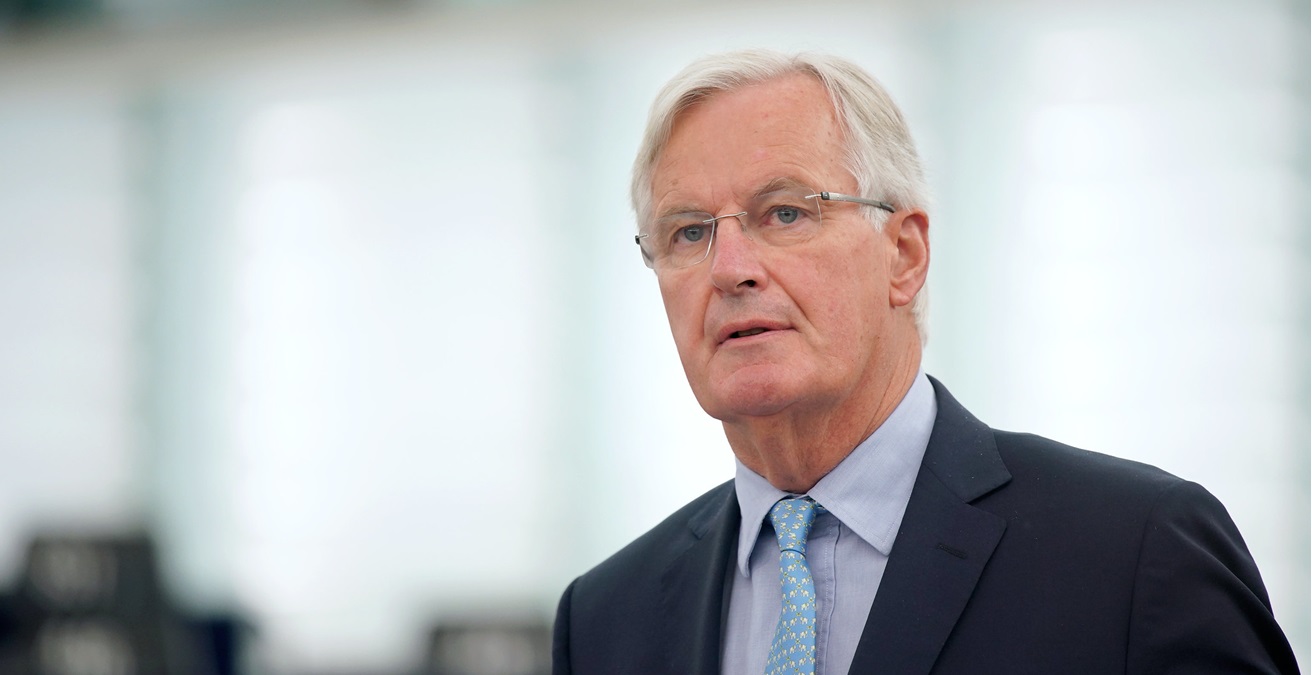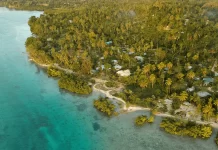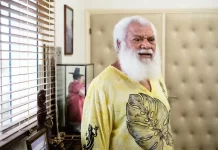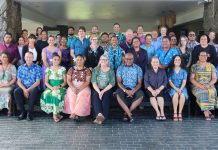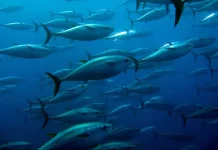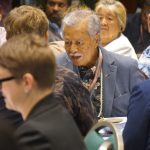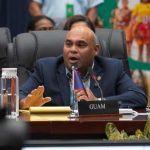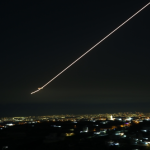By Nic Maclellan
Months after his defeat in July’s National Assembly elections, French President Emmanuel Macron has finally appointed a new prime minister and government. Meanwhile, New Caledonia’s crisis has continued—with regional implications for Australia and Pacific neighbours.
On 05 September, French President Emmanuel Macron appointed Michel Barnier as French prime minister, calling on him to form “a unifying government to serve the country and the French people.” This appointment came after an agonisingly long wait, nearly two months after the National Assembly elections on 07 July that saw a significant setback to Macron’s authority.
It then took Barnier another fortnight to cobble together a new government. As a member of the conservative party Les Républicains—which came fourth in the elections behind other parliamentary groups—Barnier has filled key ministries with members of his own party, as well as the outgoing Ensemble alliance that links President Macron’s Renaissance party with other smaller conservative forces.
Le Monde has reported that the new government, whose future is reliant on votes from the Right and Far Right, wants “to implement ‘a Right-wing policy’ focused on ‘more security’ and ‘less immigration’.” Its stability is uncertain: Socialist Party chair Oliver Faure has described the new ministry as “a reactionary government that gives democracy the finger,” while Jordan Bardella of the extreme-Right Rassemblement national said the government was “a return to Macronism” that had “no future whatsoever.”
With no parliamentary group guaranteed a governing majority in the National Assembly, ongoing uncertainty about governance in Paris has important implications for Australia—especially as neighbouring New Caledonia has been wracked by conflict since 13 May, with France deploying 6,000 police and military forces, backed by armoured cars, helicopters, and specialist paramilitary units and riot squads.
Repairing damage from the 2021 AUKUS announcement, the Albanese government has bolstered its strategic partnership with France, signing the Australia-France Road Map last December. Indo-Pacific security is at the heart of this partnership, driven by close collaboration between French Armed Forces Minister Sébastien Lecornu and Australian Defence Minister Richard Marles. The two ministers met in Brest in September 2022 to discuss a new agenda on military co-operation, and Marles has long backed closer ties to Paris, arguing: “France is our neighbour. France is a Pacific country. And as such, France deeply matters to Australia.”
Lecornu, a close political ally of the French president, retains his post in the new Barnier government. Ironically, this came after his failures as France’s Overseas Minister during the Covid pandemic, as he pushed through the third referendum on self-determination in New Caledonia, in the face of Kanak opposition (today, there are ongoing local and regional concerns about the credibility and legitimacy of this poll).
The day the Barnier government was announced an editorial on New Caledonia in Le Monde said that “France has a duty there to achieve what it has so often failed to do in the past: decolonisation. The new government is intended to bring about a complete change of political approach, following the tragic failure of previous governments…it’s time to move toward a new model of sovereignty for this territory.”
In contrast, the Albanese government’s silence on decolonisation is striking—the prime minister and foreign minister never use the word! Last year, Australian commentator Graeme Dobell argued that “Labor has run a grimly realist foreign policy seeking a balance of power in the Indo-Pacific.” While collaboration with France may seem “realist” in this strategic framework, the refusal to publicly challenge Paris about its decolonisation obligations is shortsighted—as highlighted by four months of rioting and clashes in one of Australia’s closest neighbours.
At 73, Michel Barnier will be France’s oldest prime minister under the Fifth Republic, first established by General Charles de Gaulle in 1958. The new prime minister is deeply entrenched in the Gaullist tradition and has written about France as a global power that maintains its standing on the world stage because it has colonial dependencies in every ocean. Barnier has long called for France’s overseas territories to remain within the French Republic—one reason among many that anti-independence politicians in New Caledonia have welcomed his appointment.
In 2021, Barnier mounted an unsuccessful bid to stand against Macron in the 2022 French presidential elections. At the time, he wrote an article entitled « L’Outre-Mer, ce cœur battant de la France » (The Overseas Territories, the beating heart of France), highlighting the way the overseas colonies underpin France’s status as a global power.
“France’s overseas territories are an asset for a country like ours, a founding member of the European Union and a permanent member of the UN Security Council,” Barnier wrote. “It allows France to be present in the four corners of the globe.”
Today, however, there are calls for change in French colonies across the Pacific, Indian Ocean, and Caribbean, and clashes between protestors and police in Mayotte, Martinque, Guadeloupe, and New Caledonia.
On 12 December 2021, New Caledonians went to the polls for the third referendum on self-determination under the 1998 Noumea Accord. Barnier unambiguously backed the anti-independence parties campaigning for a No vote, writing: “Without reservations or pretence, I give my full support to those who will vote for New Caledonia to remain French.”
Most indigenous Kanak and other independence supporters refused to participate in this referendum, undercutting the legitimacy and political credibility of the poll. Since then, members of the Pacific Islands Forum have criticised Macron’s attempts to derail the decolonisation process. Since May, many island leaders have expressed concern over the economic destruction and insecurity caused by Macron’s policies. In coming weeks, the prime ministers of Fiji, Cook Islands, Tonga, and Solomon Islands will travel to the islands on a monitoring mission, suggesting that the current crisis is a matter of regional insecurity, not an internal matter for France.
In the new French government, Barnier has appointed François-Noël Buffet, a fellow member of Les Républicains, as Minister for Overseas Affairs, responsible to the prime minister. As a Senator, Buffet has travelled to New Caledonia and French Polynesia in recent years, contributing to Senate reports on the role of the colonies in France’s Indo-Pacific Strategy.
As France awaits the new prime minister’s first general address to the National Assembly, independence supporters in New Caledonia also await a clear indication of Macron’s policies. The main independence coalition FLNKS has repeatedly argued that any political agreement and new statute for New Caledonia must include a clear pathway involving a referendum, with a transition towards an “interdependent” sovereign state.
In New Caledonia, battered by economic crisis and unemployment, many business leaders and politicians have despaired over the recent drift in French leadership. The lengthy delay in choosing a prime minister and cabinet has left little time for an incoming government to prepare a 2025 budget bill by 09 October. There’s a long way to go before the resolution of the current crisis—in both Paris and the South Pacific.
Nic Maclellan is a correspondent for Islands Business magazine (Fiji). He has published widely on French policy in the Pacific islands and is co-author of La France dans le Pacifique – de Bougainville à Moruroa (Editions La Découverte, Paris) and After Moruroa – France in the South Pacific (Ocean Press, New York and Melbourne).


